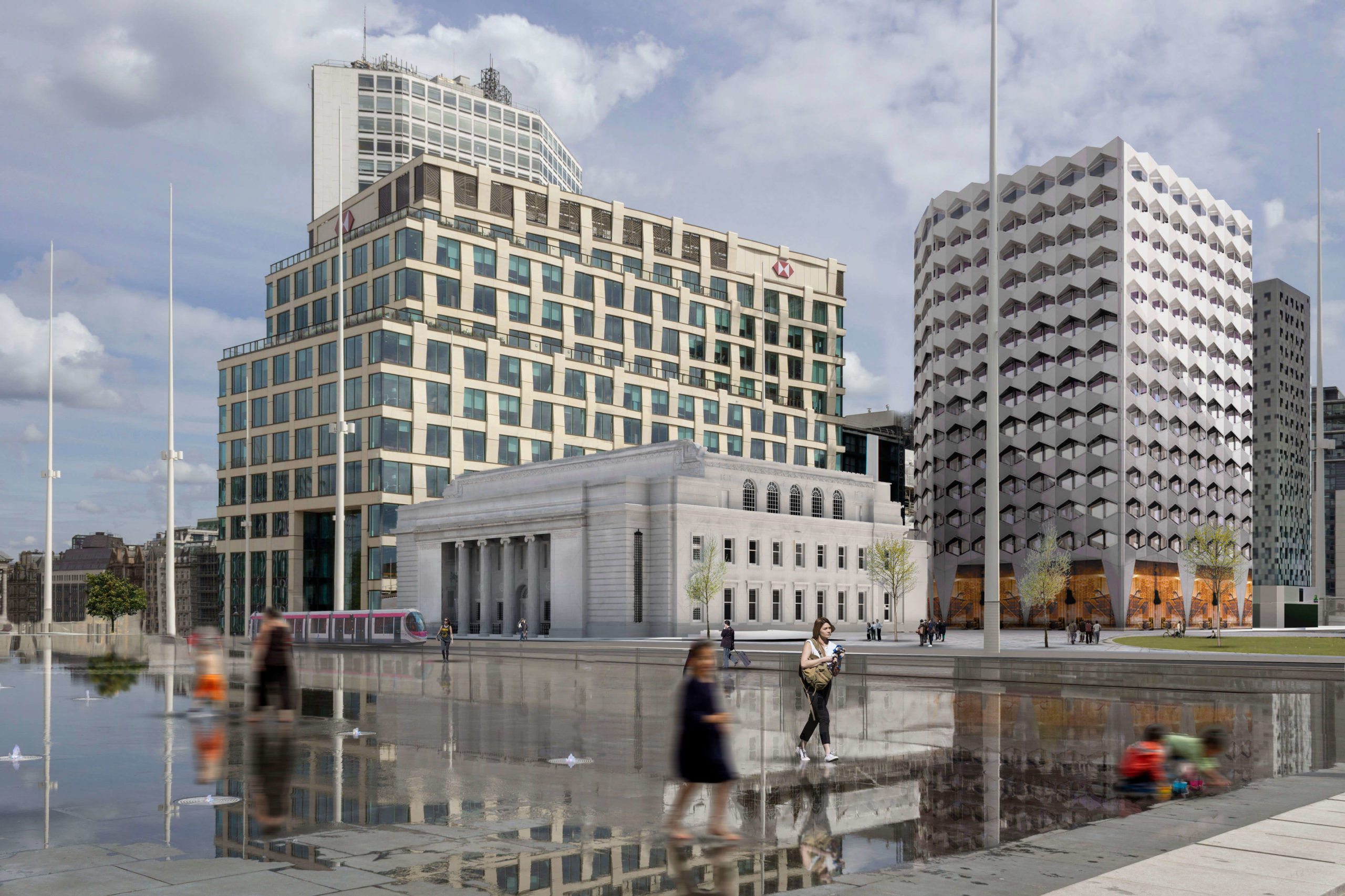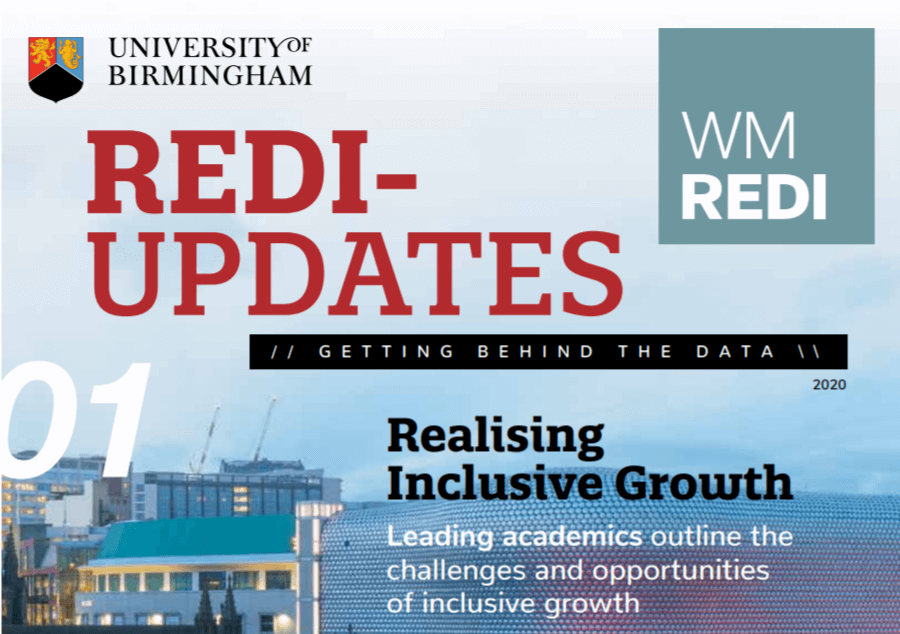Foreword – by Simon Collinson and Ben Brittain
When we began writing this, our first edition of REDI-Updates, the COVID-19 pandemic was a small and distant threat. A local crisis limited to a single city-region in China. The world has changed dramatically since then. As we re-focus our research efforts and our analytics towards projects which will help with the immediate crisis, we still believe that the topics covered in this edition remain highly relevant. They provide insights into how we might approach the post-COVID-19 ‘bounce back’, but also help with the challenges that come with a systemic shock, triggered by a healthcare crisis, but with damaging impacts on our economic and social wellbeing.
Inclusivity, balanced growth and resilience as well as the power of R&D and innovation to improve the ways in which organisations adapt to this new world are all discussed. Moreover, the West Midlands Regional Economic Development Institute (WM REDI) is a collaborative effort, hosted in a leading civic university, working with regional partners for the good of our local communities.
Collaborative innovation efforts
As the country looks to increase R&D spending to a level of 2.4 per cent of GDP (the OECD average) and has a strong incentive to rebalance growth across UK regions it is vital that university research institutes and their stakeholders engage in collaborative innovation efforts to improve our economy and our society.
A central goal for WM REDI, a recently-launched sister institute of City-REDI, is to produce robust data and analysis to connect the micro-foundations of growth with the aggregate effects. This enables us to better understand how different kinds of investments and policy interventions have different kinds of regional impacts. By integrating data and intelligence about firms, transport infrastructure, housing stock, people and skills, alongside knowledge about our region’s social and environmental challenges, we are more able to shape policy interventions to improve productivity, inclusivity and sustainability in different ways. We need balanced growth across all UK regions and our analysis is helping those responsible for driving this agenda forward.
Over the next few years, WM REDI will also focus on bridging the gap between university-based R&D and research users at the regional level and nationally, including firms and public sector organisations. UK universities are world-leading but their intellectual capital, assets and capabilities are not being fully utilised to promote balanced economic growth.
WM REDI will take regional collaboration to new heights. Dedicating a central Birmingham space, the ‘University of Birmingham | The Exchange’ in Centenary Square, to co-locate secondments from regional stakeholders, providing policy workshops and training programmes, and engaging national partners. This will facilitate the co-production of analytical tools and policy support mechanisms, enabling better policy insights through collaborative research. Building on City-REDI’s success, WM REDI will create new channels for knowledge exchange to help to rebalance the UK economy and create inclusive local economies.

This approach will also help overcome a number of challenges with our national innovation ecosystem. The current UK research and development base suffers from being too geographically concentrated in already prosperous parts of the UK. University funding and public sector investments in R&D are overly-focused on London, the South-East and the ‘golden triangle’ linked to Oxford and Cambridge. Shifting funding to less-prosperous regions, while at the same time improving the incentives for universities to support growth in their host regions would have a transformational impact.
Our goal is to strengthen regional knowledge exchange, address challenges and opportunities in university commercialisation policy and practice, maximise the economic and social benefits from established research units and ‘enhance impact through economic and social innovation’.
This magazine – the first in a series of different themed publications – is a chance for the team at WM REDI alongside leaders across the region to demonstrate the ways in which we are bridging the gap between innovative research and effective policy.
At its heart is the effort to strive for an integrated and inclusive regional growth policy. Using the first publication to discuss inclusive growth is a way of emphasising its importance to WM REDI and the need for it to be embedded within UK regional strategies. Stronger partnerships, brought together by WM REDI can help us better-leverage the region’s assets and expertise, boost innovation and connect economic growth to resident wellbeing, ensuring the benefits of local economic expansion for people and place filter to all sections of communities and the region.
View and download the magazine.
This blog was written by Professor Simon Collinson, Director, City-REDI / WM REDI, University of Birmingham.
To sign up for our blog mailing list, please click here.
Disclaimer:
The views expressed in this analysis post are those of the authors and not necessarily those of City-REDI / WM REDI or the University of Birmingham

